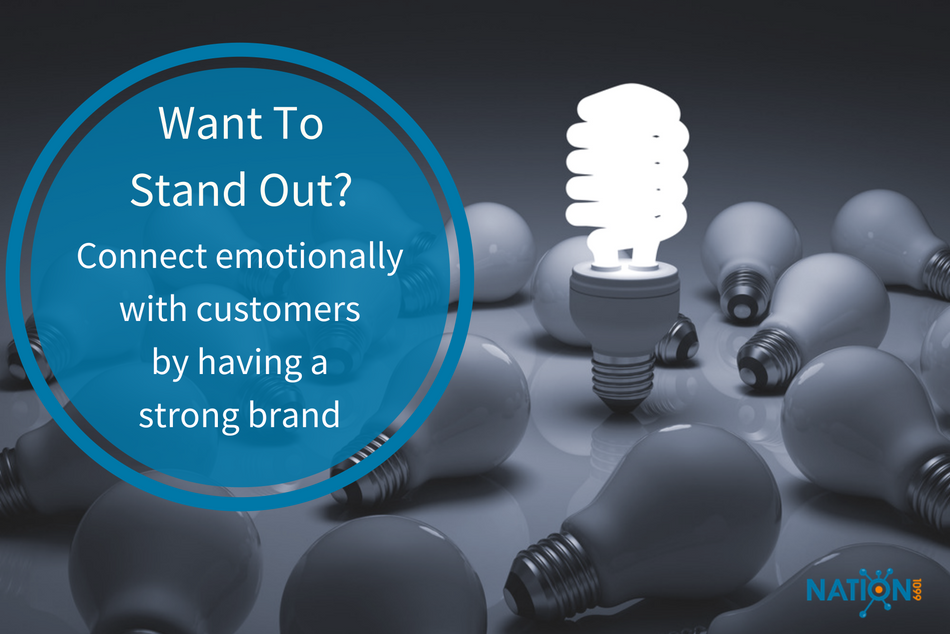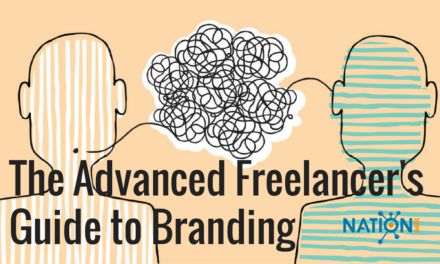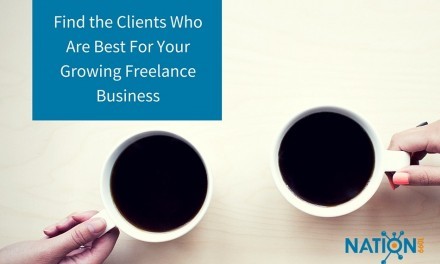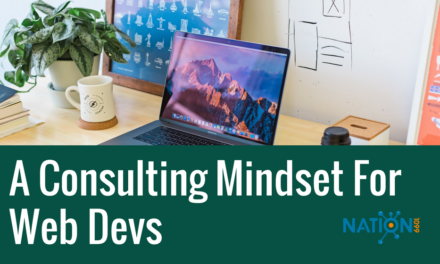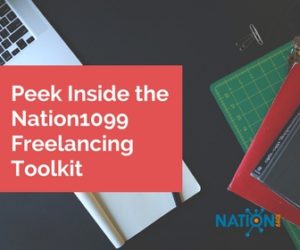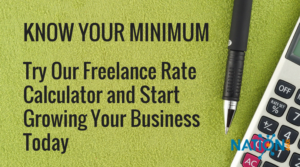Just for a moment, think back to your singles days. Unless, of course, you are still single, then just read on. You are in a bar on a Friday evening after work. Slightly exhausted from the long week but excited because the weekend has arrived. You order your favorite adult beverage, take a sip and scan the room for any familiar faces. Do any stand out? There are some people from your company you recognize, but that is not why you came to the bar. After all, you are single.
There are many pretty women and handsome men laughing and engaging in conversation. How do you decide which individual or group to approach to join in the festivities?
This scenario is eerily similar to what potential customers go through when they decide to hire an independent contractor. Whether you are a freelance writer, a photographer or graphic designer, something must make you stand out from the crowd to encourage a potential customer to choose you. To ask you out on a business date.
According to Julia Melymbrose, author of How to Create a Profitable Brand for your Business, it starts with establishing a brand. “As a freelancer, you may think that you don’t need to create a brand,” said Melymbrose. “You may even think that branding is something solely for big companies with huge budgets. But that’s not true.”
In addition to creating a brand, it is also imperative to be considered accomplished in your field. Copywriter Robert Bly says that you need “to establish yourself as a recognized expert in your field.”
On top of establishing a profitable brand and being viewed as an expert, savvy businesses are turning to emotional-connection analytics to help stand out in a crowded, competitive business environment. In their article The New Science of Customer Emotions, Scott Magids, Alan Zorfas and Daniel Leemon argue that more profits can be made by moving existing customers from “satisfied customers” to having a “full emotional connection.”
Create a brand, establish yourself as an expert and make that emotional connection. Wow! Is your head spinning? No worries. Read on to learn how to create a brand, establish yourself as an expert in your field and use emotional-connection analytics to help your solopreneur business stand out from the crowd. And who knows, maybe the single readers can use this powerful intel to secure more dates.
Create A Stand Out Brand
Melymbrose says that branding is about incorporating your “what” with your “how” and your “why” to create a unique identifying mark that showcases your true value. There are three steps to discovering your brand: Ask yourself, what is your proposition, personality and purpose?
Proposition. What do you propose to do for your clients? Melymbrose says it can also be referred to as your brand promise. “What promise are you making them that will lure them in?”
Personality. After you figure out what you do for clients, “it’s time to tackle the how,” says Melymbrose. This is your brand personality. “What is special about the way you do things?”
Purpose. Finally you must address the why. “If answering the ‘what’ gave your brand shape, and answering the ‘how’ dressed it in attractive, stylish clothes, answering the ‘why’ will plant the heart to make your brand come to life,” says Melymbrose. “Ask yourself the big questions: Why am I doing this? Why is writing, coding, photographing ‘your life’s work?’ What about it do you love?”
Melymbrose emphasizes the importance of what your brand says about you and how potential customers perceive your value. “Because if you don’t,” she says, “you’re practically playing Russian Roulette with your contracts — and your bank account! Not smart.”
Establish Yourself As An Expert
Robert Bly stands out from the crowd as a freelance writer. The man literally wrote The Copywriter’s Handbook and has Fortune 500 companies approaching him for his services. How did he achieve a level of success that most commercial writers only dream about?
For Bly, establishing himself as an expert in his field was key to his extensive reach. “There are many ways to do this,” he says, “writing articles, writing a book, social media, publishing a blog or e-newsletter, and speaking at industry meetings.”
In this digital age, if you are not online you do not exist. Bly furthers enhances his expertise by employing an impressive website to sell his services. He recommends two steps to create a strong digital presence: “Step 1 is SEO. Optimize your site for the keyword phrase people would search when looking for your service.” The next step, he says, is using “strong calls to action on your home page.” He points out the upper right corner of his own website, where a stick note reads: ‘Need great copy? Click here now!’ Strong indeed.
How else can you stand out in a crowded industry and establish yourself as an expert? “There are so many ways,” says Bly, citing direct mail sales letters, postcards, lead magnets, squeeze pages, online ads, and print ads as a partial list. “Up your game so you are in the top 10% in terms of skill levels and quality of your work,” he adds.
Bly also advises specializing in an in-demand and not overcrowded niche. To achieve that expertize, to get in the top 10% in skill level, Bly has two courses of action: “The only two ways to become better are through practice — the more you do [your skill or task], the better you become — and through study: taking the courses, training, reading the books.”
Emotional-connection Analytics
Magids, Zorfas and Leemon set out to define the “emotional connectors,” or the feelings that drive customers’ behavior. They argue the connectors “provide a better gauge of customers’ future value to a firm than any other metric, including brand awareness and customer satisfaction.”
To help define these vague concepts think of Apple and its legions of followers. Apple disciples buy an iPhone, not a cell phone. They purchase cool design, not just a desktop computer. Or think about Tom’s shoes. The company famously gives away a pair of shoes to a person in need for every pair purchased. Customers feel good after purchasing Tom’s shoes. These companies have created an emotional connection with their customers.
The authors of the study established an “emotional connection pathway” that potential customers travel. “We find that customers become more valuable at each step of a predictable pathway,” they write, “as they transition from (1) being unconnected to (2) being highly satisfied to (3) perceiving brand differentiation to (4) being fully connected.”
It bears repeating: Being emotionally connected is more valuable than highly satisfied.
To tap into this powerful research, one must determine the goal for the customer. The study discovered hundreds of customer emotional motivators. If your customers are motivated to stand out from the crowd, brands must project a unique social identity or be seen as special (Tom’s anyone?). If customers are motivated by a sense of belonging, brands must have an affiliation with people they relate to aspire to be.
“To maximize results,” say the authors, “companies must align their emotional-connection strategies with their specific customer-engagement objectives — acquisition, retention, cross-selling, and so on.”
Scanning The Bar
Let’s go back to the bar on that Friday evening. As you scan the room searching for someone to approach, think about how much more confident (and attractive) you would be if you had this information in your arsenal. Your brand would address the initial question of, “Who are you?” Sharing your expertise would satisfy the next question, “What do you do?” And making an emotional connection would answer the question, “Why should I pick you?”
With the proper mix of all three tools, you will stand out from the crowd in your industry and hook up more often. With customers!
Related reading you may enjoy
Expand Your Sphere of Influence, Expand Your Business
6 Fearless Steps You Can Take to Grow Your Consulting Business
The Path To Higher Paying Clients – Insights From the Marketing Mentor

David Karch
Guest Author

